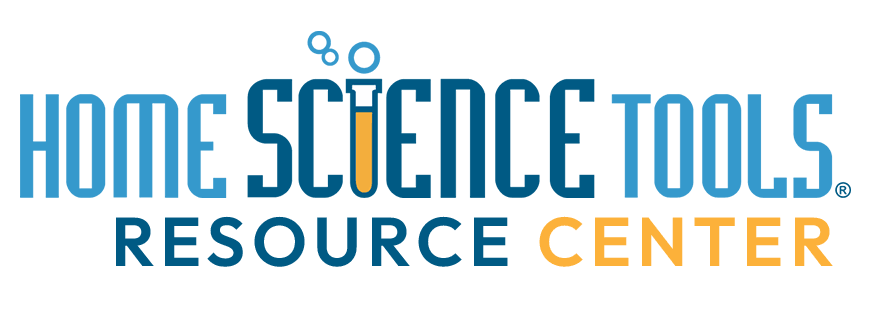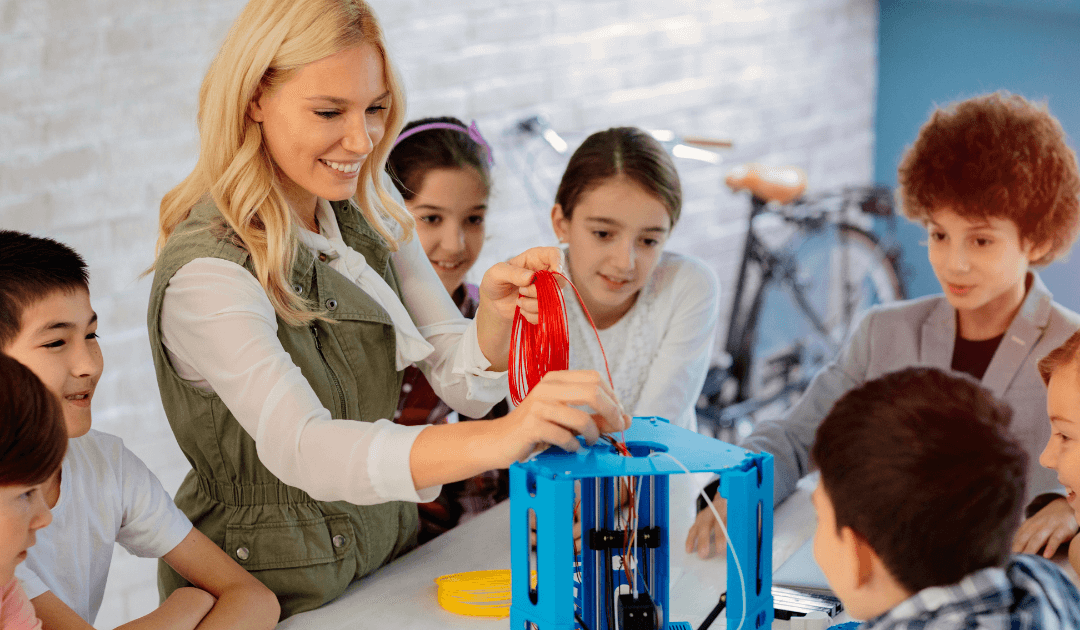Are you curious about what life skills your child learns from hands-on science each year? If you’re like many of the parents we help each year, you know that science is an important subject for your child to study. But you may not know exactly why science is essential or what life skills your child gains from dissecting specimens and competing in science fairs. And you are not alone. Especially if you don’t feel like science is your most knowledgeable subject as a homeschooling parent. In this article, we’ll share the four critical life skills your child learns by doing hands-on science and we’ll share resources to help you succeed as their teacher.
Are you ready? Let’s jump in!
What is hands-on science?
Hands-on science is an approach where children learn by doing science rather than memorizing information. Instead of listening to a lecture and repeating information back to you, kids ask their own questions and find the answer. They are engaged, curious and active in their learning from the start because they are actively participating.
What skills will my child learn by doing hands-on science?
Life Skill #1: A deeper understanding of concepts
Studies have shown that students who engage in active learning approaches like hands-on science retain a deeper understanding of the concepts presented and often score higher on tests long after doing the science experiments.
Here’s a quick story to explain how it works.
A recent article shared an experiment at the University of Chicago where two groups of college physics students learned about torque – the resistive force that causes objects to rotate. They used bicycle wheels to feel the resistive force. One group of students held the titled wheels in their hands and got to feel the torque while the other group simply observed. After the experiment, both groups of students were given a test to see what they learned. The group that physically held the wheels scored higher on the test than the group who simply watched.
Professor Sian Beilock, director of the study concluded “In many situations, when we allow our bodies to become part of the learning process, we understand better.”
Hands-on learning drives home the connection between the body and the mind for your child – and it’s fun for them too. Win-win!
Life Skill #2: Problem-Solving
As a parent, you already know that learning how to solve problems is important for each child’s development. As your child gains life experiences, they learn independence and how to become a skilled problem solver. They build self-confidence and are more prepared to handle bigger challenges as they grow.
Hands-on science experiments ask your child what they think will happen. They make a hypothesis, do the experiment and then report the results. They get to see their answers unfold right in front of their eyes. Basically they get to be a real scientist and detective – how fun is that? This active engagement grows their sense of wonder and discovery which is key for being a great problem solver later in life.
We believe in the hands-on science approach so deeply, that we developed Science Unlocked, a complete K-12 hands-on curriculum designed to make teaching science easy and simple for homeschool families. Learn more about Science Unlocked here.
Life Skill #3: Critical Thinking
Critical thinking is a combination of thinking, reasoning and making sound decisions. As a homeschooling parent, you play a key role in helping your child develop these skills.
Critical thinking skills are valuable for your child’s higher education and career as well. 93% of US business leaders participating in a survey reported they believe that “a demonstrated capacity to think critically, communicate clearly, and solve complex problems is more important than [a candidate’s] undergraduate major”.
Inquiry-based, hands-on learning is a great approach to help your child develop these skills. It is also likely to be a lot of fun for your child too!
Kids love when we ask them what they think – and hands-on science experiments give your child plenty of opportunities to share what they think will happen and then have fun doing experiments to find out if they were right.
Life Skill #4: Curiosity
Kids are naturally curious creatures – and hands-on science inspires them to be even more curious about their world (just ask any parent how many times their children have asked them “Why?” since breakfast). Hands-on science is the perfect place to direct all that excitable curiosity.
Curiosity also increases your child’s retention of information. Studies have shown that when we are curious about a subject, we are more likely to remember the information we learned about that subject. Kids love learning about bugs, anatomy, chemical reactions, robotics, earth and space and more. With hands-on science, there is no end to nurturing your child’s curious nature.
Science Resources for Homeschool Families
If you’re ready to dive into hands-on science with your kids, here are some of our favorite hands-on science education resources and products to try.
Want to try free hands-on science lessons and teaching resources?
- Explore over 700+ science lessons, projects, parent guides and teaching right here in our Resource Center.
Want the latest and greatest in hands-on science education? Meet Science Unlocked.
- Science Unlocked is our revolutionary new science curriculum that teaches your child real science and is easy for any parent to teach. It delivers everything you need to teach science with confidence in just one box!
- Choose a full year curriculum with our popular bundle option or try it a month at a time.
- Each Science Unlocked kit includes the supplies and all necessary guidance to teach your student science and conduct engaging hands-on labs for an entire month.
- Bonus: You don’t need any prior science experience.
- Double Bonus: You don’t even need to like science to rock at teaching it!
Want to browse all the top science curriculums and kits from major educational companies?
Shop our 3000+ science education products.





